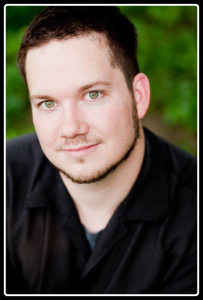 This week I shared a story of a major writing setback when I outran my own scene list. I’ve also told stories before about losing pages, chapters, books.
This week I shared a story of a major writing setback when I outran my own scene list. I’ve also told stories before about losing pages, chapters, books.
The writer’s life is tragedy. Partly, that’s because of the unpredictable nature of the process. Mostly, it’s because writers spend so much of their time wallowing in melodrama, but don’t tell them I said that.
Honestly, the saddest thing about the writing experience isn’t ever the lost time and energy that make up so many of the tragic stories. It’s something far more common, part of the process itself, and it’s virtually impossible to escape.
Wanting Not to Write
One of the newer guys in my writing group asked us veterans a question midway through NaNoWriMo this year. He said, after all this talk of “week two slumps” and “week three slumps,” that he didn’t really have weekly slumps.
Instead, he said,
I sorta have a daily slump where I’d rather be doing anything but writing during my writing time. But then, once I actually sit down and do some writing, the words come fairly easily. But woe betide me if I stop once I’ve got that flow, even for fifteen minutes, because then I’m right back to slump. Weird or not?
Not, was our consensus. In fact, I asked his permission to share the question here because I think it’s an incredibly common phenomenon. It reminded me right away of a quote I saw on Twitter last week:
A writer is a person for whom writing is more difficult than it is for other people. ~Thomas Mann
It’s the biggest frustration of every writer I know. We all want to write. Sometimes we live to write. But the moment we sit down to actually get some writing done, we desperately want to do absolutely anything else.
Recognizing Writers
If you’re not a writer, that might seem hard to understand. Maybe even difficult to believe. It’s remarkably consistent, though.
As a matter of fact, I’d go so far as to say the only thing that separates a “real writer” from everyone else is the ability to write anyway, even when they don’t want to. That’s it.
It’s tempting to throw in some amount of respect for basic rules of grammar, an understanding of communications theory, or maybe long practice in the fundamentals of style, but all of those things vary wildly from one writer to another with no real relationship to productivity or quality.
The one core, crucial characteristic of every good writer out there is the ability to write anyway. To get to “The End.”
That’s what I love most about NaNoWriMo. It’s a free four-week course, open to the public, on what it really takes to be a writer. At the end of November, whether you accomplish anything or not, you know.
Dealing with Distraction
The most important thing to take away from this, if you’re a new writer, is that this struggle is completely normal. It feels like a deep-down betrayal (every time), but you have to recognize it for what it is — a shying away from the monumental challenge that is “writing a book.”
Even a bad book. Even a short book. Even a rushed book. Even a twelfth book. It doesn’t matter who you are or where you are in your career, writing a book is terrifying, and your body will do everything in its power to convince you to run the other way.
It doesn’t mean you’re not cut out to be a writer. It means, just like the guy in my writing group, you need to start looking for some tricks to help you deal with the distractions.
I’ve found a handful of things that help, and I plan to share them with you tomorrow. In the meantime, if you’ve got your own tricks, why don’t you post ’em in the comments? NaNoWriMo is almost over, and we all need all the help we can get.





